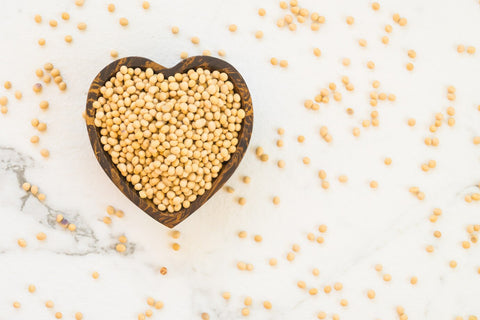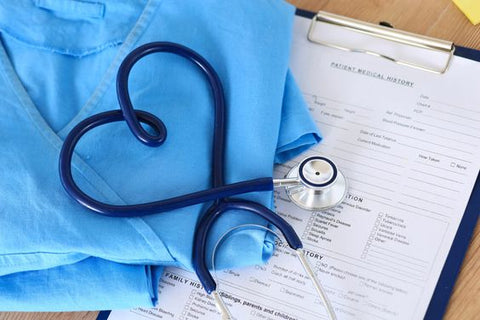Several studies have shown that phytoestrogens play an important role in protecting against breast cancer, i.e. reducing its incidence.
Phytoestrogens are natural compounds that are found in many plant-based foods and are so named because they have an action similar to that of estrogens in the body. Although the tradition and experience of Eastern cultures supports their safety and tolerability, the increase in their consumption as an alternative treatment to hormone replacement therapy (HRT) in recent years makes it necessary to conduct further studies to confirm their properties and guarantee their long-term efficacy and safety.
Interest in phytoestrogens arose from the observation of some epidemiological studies that compared the diet of the Western population with that of the Eastern population, especially in Japan, where there is a lower incidence of cardiovascular disease and some cancers such as breast, endometrium, prostate and colon. Likewise, Asian women also have a lower incidence, compared to Western women, of disorders associated with menopause, such as hot flashes.
According to these studies, one of the biggest differences between the two types of diets is the consumption of soy and its derivatives. It was found that the Western diet provides less than 5 mg of isoflavones per day (among other components, soy stands out for its isoflavone content).
Based on these findings, various investigations were carried out that linked low concentrations of these compounds with a higher incidence of the aforementioned diseases. Given the hormonal factor of these diseases, the protective effect of the oriental diet against them is attributed to soy isoflavones, which have a weak estrogenic activity.
Action on the symptoms of menopause
Epidemiological studies have shown that a diet rich in isoflavones reduces the incidence of symptoms, and in particular hot flashes . Approximately 75-85% of Western women experience hot flashes, while only 15-25% of Japanese women experience them.
There are many studies that confirm a significant improvement in hot flashes in women treated with isoflavones compared to controls, and for this reason a clinical trial was recently published in Spain on 190 postmenopausal women from nine different autonomous communities who were treated with a preparation of soy isoflavones. After 4 months of treatment, a significant decrease in the number of hot flashes was observed in 80.82% of women . In addition, a significant improvement was observed in the other parameters evaluated: sleep disorders, nervousness, depressive mood and decreased libido.
Phytoestrogens and breast cancer
Isoflavones, compounds with estrogen-like but weaker actions found in soy, may reduce the risk of breast cancer coming back (recurrence) as well as the risk of dying from breast cancer, according to a study.
The research was published on January 10, 2024 in the journal JNCI Cancer Spectrum “Phytonutrients and outcomes after breast cancer: a systematic review and meta-analysis of observational studies.”
This study was a meta-analysis, in which the results of many previous studies are combined and analyzed. In this case, researchers reviewed 22 studies involving 80,698 women who were undergoing treatment for breast cancer or had a history of breast cancer.
It is important to note that in recent years, scientific societies have recommended avoiding the consumption of phytoestrogens in women who have had breast cancer due to the lack of studies confirming their safety in this population of women. Therefore, the intake of phytoestrogens through supplementation is not indicated.
Results
The researchers classified the results on soy isoflavones and enterolactone as probable, meaning the research showing the compounds contributed to the results was strong.
Soy isoflavones
Six of the studies focused specifically on soy isoflavones. Overall, these compounds were linked to a 26% reduction in the risk of breast cancer recurrence.
Foods with Phytoestrogens
Some of the foods with the highest content of natural phytoestrogens are:
Nuts
Walnuts, almonds, pistachios and hazelnuts contain phytoestrogens, mainly lignans and stilbenes. They also provide healthy fats, proteins, fibre and minerals. In addition to their beneficial properties for cardiovascular health, nuts can be a way to incorporate phytoestrogens into our diet , which provides us with many more nutrients that are beneficial for health.
Vegetables, fruits and vegetables
Vegetables such as broccoli, kale, cabbage, Brussels sprouts, asparagus and carrots also contain phytoestrogens. These foods are a rich source of vitamins, minerals and fibre, and can complement a balanced and healthy diet.
Fruits: Fruits, especially berries, grapes, pomegranates or citrus fruits, contain phytoestrogens, especially stilbenes such as resveratrol or naringenin. Fruits are also rich in vitamins, antioxidants and fibre.
It is important to include a variety of phytoestrogen- rich foods in our daily diet to obtain maximum health benefits. Vegetables also provide vitamins, minerals and fiber.
Some fruits, such as apples, pears and plums, contain moderate amounts of phytoestrogens.
It is important to know that diet plays an important role in health and if it is not adequate, it can be a risk factor for the appearance and progression of tumors. However, it must be taken into account that diet alone is unlikely to be the cause or cure of cancer.
References
Regenera, E. (2023, October 25). Phytoestrogens: Foods with natural phytoestrogens, Properties and Benefits. Regenera Health | Leaders in Integrative Medicine and Psychoneuroimmunology.
Peñalvo, JL, Hanhineva, K., & Adlercreutz, H. (2014). Bioavailability of rye lignans and their relevance for human health. In Elsevier eBooks (pp. 71–84).
Ayuso, M. (2016, June 3). The seven medical tests that all women should have. elconfidencial.com . Barnaclínic. (2021, August 11). Estrogens: What are they, how are they produced and what function do they have? Women's Health Blog. Female checkups | Your health channel. (nd). Your Health Channel.
Transit, LLM (2010, May 1). Phytoestrogens. Efficacy and safety. Offarm.
Health screenings for women ages 40 to 64: MedlinePlus Medical Encyclopedia. (nd).
van Die MD, Bone KM, Visvanathan K, Kyrø C, Aune D, Ee C, Paller CJ. (2024, Jan 4). Phytonutrients and outcomes following breast cancer: a systematic review and meta-analysis of observational studies. JNCI Cancer Spectr.




Comments (0)
There are no comments for this article. Be the first one to leave a message!